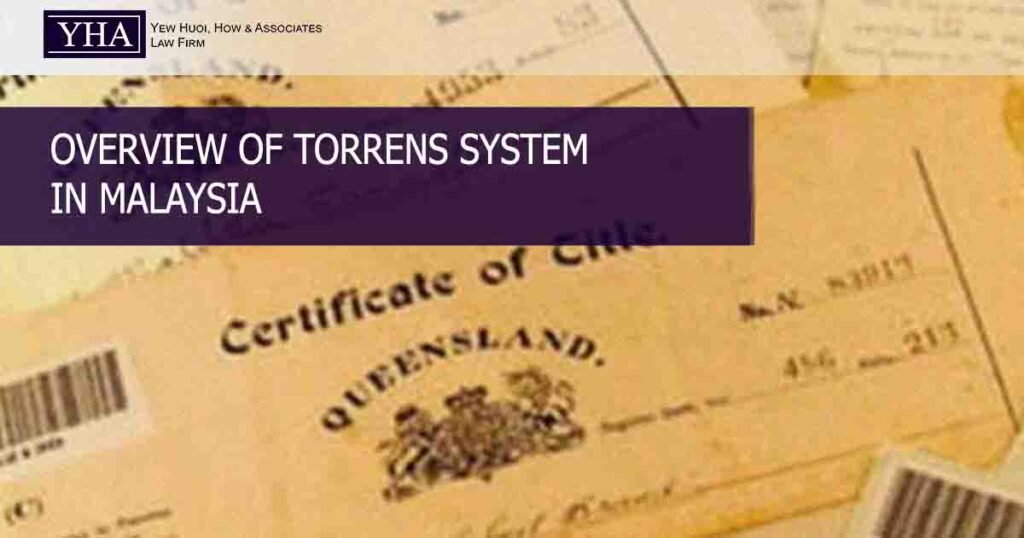Overview of Torrens System in Malaysia:
Malaysia’s land law and transactions are guided by the Torrens System, which ensures that the land registry accurately reflects all vital details about the land’s registered owner. As per Section 89 of the National Land Code 1965, Malaysia’s land law and transactions are guided by the Torrens System, which ensures that the land registry accurately reflects all vital details about the land’s registered owner. As per Section 89 of the National Land Code.
It is important to recognize that the Malaysian Torrens System maintains the principles of equity. This system is structured to allow equity’s jurisdiction to intervene based on conscientious grounds, ensuring fair treatment.
Issues:
Legal Issue: Status of a Buyer Who Has Paid in Full the Purchase Price:
The question arises: Does a buyer who has paid the full purchase price become the beneficial owner of the property?
- Upon full payment, the seller assumes the role of a ‘bare trustee,’ legally restricted from selling or transferring the land to others.
- Any subsequent transfer of the property to new buyers is invalid, as the seller, being a bare trustee, lacks the legal capacity to make such agreements.
- Therefore, a buyer who has finalized the sale agreement and paid in full is deemed the beneficial owner, enjoying the privileges of ownership, even before official registration as the landowner.
Illustrative Scenario:
X signed sale and purchase agreement (“SPA”) with Y to buy a property. When the SPA was executed, individual title for the property had yet to be issued. Having paid the full purchase price for the property, X would become beneficial owner of the property although he was not registered owner of the property, while Y would become bare trustee of the property.
Reference Cases:
- Mollie Ong Siew Choo @ Mrs Chong Kim Choy & Ors v NCT United Development Sdn Bhd [2023] 12 MLJ 241 [HC]
- Wan Noor Kamariah bt Wan Jaafar v Aritah Realty Sdn Bhd & Ors and other appeals [2021] 6 MLJ 446
- He-Con Sdn Bhd v Bulyah bt Ishak & Anor (as administrators for the estate of Nor Zainir bin Rahmat, the deceased) and another appeal [2020] 4 MLJ 662
- Federal Court in Samuel Naik Siang Ting v Public Bank Bhd [2015] 6 MLJ 1
- Federal Court in Borneo Housing Mortgage Finance Bhd v Time Engineering Bhd [1996] 2 MLJ 12

